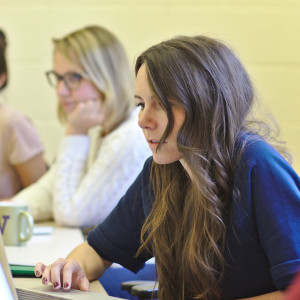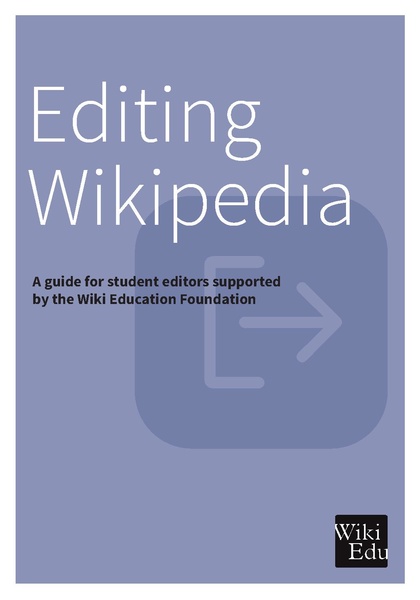Wiki Ed staff travel around the United States and Canada to present our model to universities, colleges, and academic conferences. Time and time again, we’re asked: “You know Wikipedia isn’t a reliable source, right?”
That’s perhaps the biggest misunderstanding about Wikipedia assignments. Nobody should cite Wikipedia in an academic paper. Our approach to Wikipedia is simple:
“Don’t cite it. Write it!”
We’re inspired by the idea that students have something to contribute. They have books. They have access to academic journals. They have their brains, which can think critically about what they read on Wikipedia. Those same brains can make sense of how to fix problems or gaps in what they find.

But they also have you, their instructor. Students are learning from experts. You can look at Wikipedia and see the gaps and inaccuracies. Some experts see problems, and turn their backs. But whether you use it or not, millions of people turn to Wikipedia every day. More people visit Wikipedia on mobile than visit Fox News, CNN and the USA Today combined. They use it to stay informed and make decisions.
It’s not just lay people satisfying their curiosity, or trying to win bets. Wikipedia was described as “the leading single source of healthcare information for patients and healthcare professionals” in 2014. It’s also used by journalists trying to contextualize a story on deadline. It’s referenced by political staffers trying to understand the ramifications of proposed policies.
For academics concerned about the public’s understanding of their field, walking away from Wikipedia isn’t an option. But academics are busy and pulled in many directions. Time gets swallowed up in the pressure to publish, advise, develop, and engage.
That’s just one reason why the Wikipedia writing assignment makes sense.
You can increase public engagement with your field by assigning students to improve Wikipedia. It’s a more meaningful writing and critical thinking exercise for your students than a traditional term paper. It just so happens to double as service learning.
They don’t just learn how to contribute to Wikipedia, they also learn how to read it. A student compares what they’ve learned to the information presented in a Wikipedia article, and interrogates what they see. They learn to engage in what they read, and they’re empowered to make a difference.

We know you know it’s not a reliable source for academic work. But do your students? We can’t think of a better way to engage students in thinking about what makes a source reliable. They’re contributing to a website read by millions of people. Some of their articles will be read by thousands, or hundreds of thousands. They’ll think carefully about what they contribute, and later, they’ll think carefully about what they read. They’ll learn to evaluate the information they find online, and determine for themselves whether or not to trust it. Rather than a blanket ban on Wikipedia (they’re going to use it anyway), we can expand their critical thinking tool box to ensure they use it well.
So, when people tell us: “You know Wikipedia isn’t a reliable source, right?” We say, “Yes. That’s exactly why it belongs in your classroom!”
Wikipedia assignments don’t take over your class. Our tools are free to use. We help students understand how to work on Wikipedia, while you take care of the rest. We have online tools for you and your students to get comfortable with Wikipedia. We have staff members assigned to every course to help your students as they go. And did we mention it’s completely free?
We’d love to help you get started.
Check out our resources, or start a conversation about how Wikipedia can work with your course by emailing us: contact@wikiedu.org. We’d love to hear from you!
Photo: Modified from Pointing hand cursor by Manuel Campagnoli – Own work, CC0.
